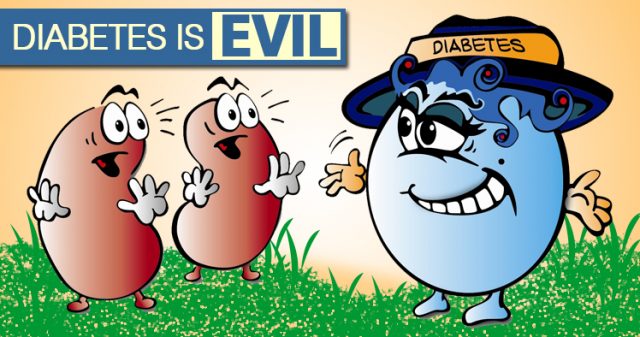Diabetes is referred as diabetes mellitus, a group of metabolic disorders in where the person has high blood sugar, due to inadequate secretion of insulin or when the cells do not respond to insulin. The patient with high blood sugar experiences polyuria, polydipsia and polyphagia.
Most the food we eat has carbohydrate that is broken down into glucose, which is the main source of fuel to the cells in the body. Insulin is a hormone produced by pancreatic cells. This passes into the blood and regulate the blood sugar. A right amount of insulin directs adequate level of glucose into the cells to produce growth and energy.
There are three types of diabetes:
- Type 1- In this condition body does not produce insulin. Type 1 diabetes generally developed before the age of 40 or in teenage. Out of all diabetes cases 10% (approx.) are found to be type 1. Type 1 diabetes is also known as autoimmune disease that is caused by the beta cells of the pancreas, that are responsible for insulin production. These cells are attacked by the immune system which is no more functional. It is believed that in type 1 diabetes inheritance causes the tendency to develop abnormal antibodies.
- Type 2- Approximately 90% of all diabetes cases are type 2. In this condition the body does not produce adequate amount of insulin or the cells start resisting insulin. Type 2 diabetes is caused due the steady decline in beta cell production of insulin, that helps to worsen glucose control.
Gestational Diabetes- This condition develops in females during pregnancy. Certain women have high amount of glucose in their blood and they are unable to produce enough insulin in order to transfer glucose across the cells.
There are several other factors causing diabetes like, obesity, high blood pressure, cholesterol, PCOS, schizophrenia and many more risk factors are responsible for the development of diabetes.
A high blood sugar level can cause a number of symptoms,including:
- Blur vision
- Excess thirst
- Fatigue
- Frequent urination
- Hunger
- Weight loss
Following are the different ways to control and cure diabetes:
Introduce a Diabetic Friendly Diet:
Basic food, especially includes carbohydrates, fats, sugar, and starches which has a direct impact on blood sugar levels. It is important to learn about portion control and create well-balanced meals that incorporate a lot of non-starchy vegetables. Work with your doctor or dietitian to introduce a meal plan that will help your nutrition needs. Avoid foods rich in saturated fat and cholesterol as they lead to cardiovascular disease,obesity and other complications.
Stay Physically Active:
Exercise can help you to improve your living with diabetes. Physical acitivities like cycling, swimming, walking, strength, training and other that gets you moving. Consult your physical trainer before starting any physical workout in case of any guidelines required.
Monitor Your Blood Sugar Daily
When living with diabetes, you can reduce serious health risks, or complications, with good blood sugar. By monitoring the blood sugar on daily basis and keeping a chart will provide both you and your doctor valuable information for future references related to your diabetes. In case your blood sugar is not under control, or has become difficult to control then your doctor can use your records as a blueprint to make changes to your treatment or routine.
CLICK HERE FOR BEST BP MONITORS
Regular Medications as Prescribed
Keeping medication track is necessary if you are living with diabetes, especially if you are treating more than one health problems. A range of medication involves vitamins, minerals and supplements to help and manage the function of your dose. Other than medicines, there are people who requires insulin from outside to regulate the blood glucose. To understand your medical procedure of using insulin is necessary.
The risk of diabetes complications increases with age. Protecting all is a difficult but the prior task to defect the consequences of diabetes.






























































